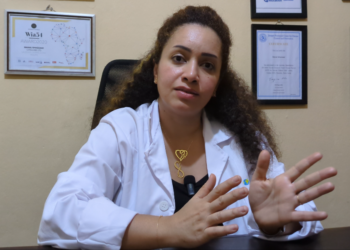By Cheryl Alafia Thomas
Sierra Leonean infectious disease expert, Dr. Sulaiman Lakoh, has warned of the high prevalence of hepatitis in the country.
Dr Lakoh, an internal medicine specialist, who is the Director of Disease Prevention and Control in the Ministry of Health (MOH), said that out of every 100 people tested in Sierra Leone, 10 are found to be positive for Hepatitis B, while 2 or 3 out the same number bear a marker of Hepatitis C.
Hepatitis is an inflammation of the liver that is caused by a variety of infectious viruses and noninfectious agents leading to a range of health problems, some of which can be fatal, according to the World Health Organization (WHO).
The liver is an organ designed to store vital chemicals, manufacture body building substances and defend the immune system against adulteration.
There are five types of the hepatitis disease – A, B, C, D and E.
In Sierra Leone, types B and C were found to be the most common, according to Lakoh, citing a study he was involved in which showed that the two stay longer in the system. And he said that these are the two that can lead to liver cancer. The good news however, he noted, is that both are curable, although they have different treatment dimensions.
While Hepatitis C is completely curable within 12 weeks, Hepatitis B can only be suppressed from affecting the body’s functionality during the primary stage of treatment. However, when a patient maintains consistency with the required treatment, the hepatitis B virus can eventually be completely destroyed.
Also, between the two, only Hepatitis B has a preventive vaccine.
Lakoh warned that excessive drinking of alcohol, drug abuse, and consumption of herbs without the appropriate dosage can harm the liver.
The most common form of transmission of hepatitis in Sierra Leone, according to public health expert is mother-to-child. But he noted that this can be prevented by running tests on pregnant women and vaccinating potential hepatitis patients at birth.
The Sierra Leone government is said to be working on procuring a vaccine to be administered on children within 24 hours of birth.
Another common mode of transmission of the liver disease, Lakoh said, is sharing of sharp objects like razor blade, nail cutters, pedicure, manicure, and tattoo tools.
Nausea, swollen stomach, stomach pain, yellow eyes, weakness, fever, swollen feet are the outstanding signs of hepatitis.
Dr Lakoh urged people to do check-ups and ascertain their medical condition even when signs and symptoms are not noticeable.
He debunked myths surrounding kissing and sweating as means of transmitting Hepatitis, noting however that visible wounds on infected persons can make them potentially contagious.






















